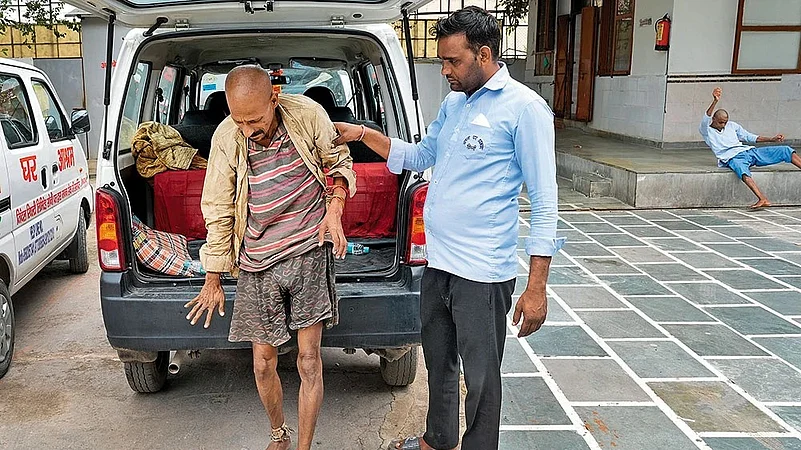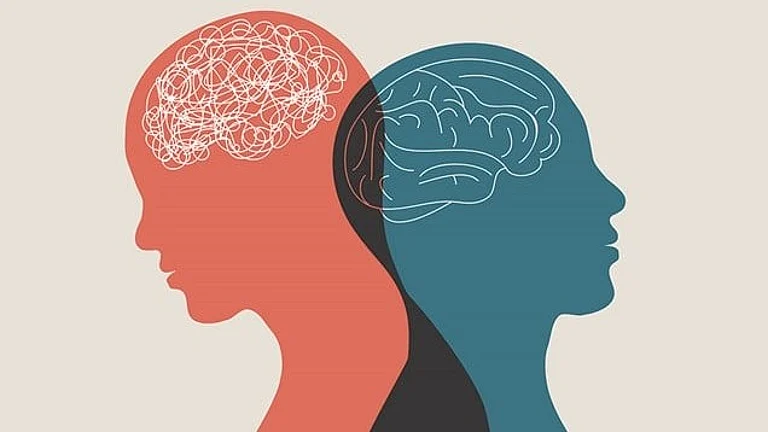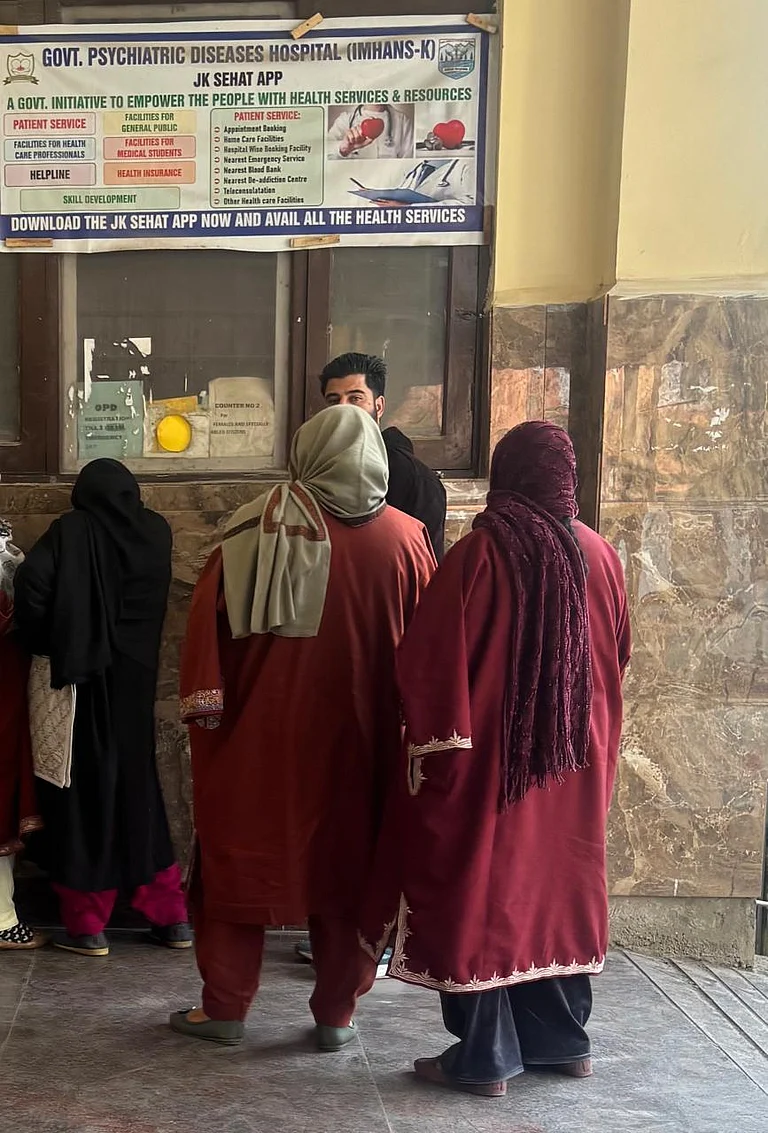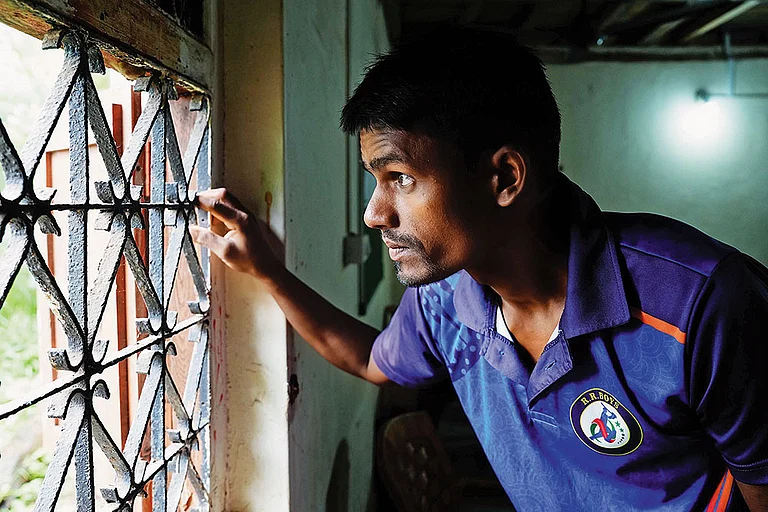
Summary of this article
Anti-beggary laws across India, including the Bombay Prevention of Begging Act, 1959, treat poverty and homelessness as crimes, disproportionately affecting persons with mental illness.
Homeless individuals with mental illness are detained in Beggars’ Homes, often without treatment, leading to worsening conditions.
Decriminalising beggary and replacing punitive measures with care, compassion, and inclusive policies is essential to address both homelessness and mental health in a humane way.
Life on the streets is full of hostility and abuse. Violence and humiliation are the norm. A large number of destitute people are compelled to live on the streets as homeless. Several of these people suffer from mental health issues. Many develop mental illness due to the abuse, trauma and neglect they experience regularly when living in destitution while many end up on the streets as the result of the abandonment they face after falling ill. Every homeless person lives with high vulnerability to exploitation, uncertainty and hurt.
If the homeless are vulnerable, even more vulnerable are those with mental illness. Still higher at risk are those mentally ill homeless persons who are caught under the Beggary Law. While the Beggary Law is amongst the most draconian legislations we have, the severity increases manifold in the context of mental illness.
At present, more than 20 states and two Union Territories have anti-beggary laws. The features of these anti-beggary laws in different states are more or less similar. Broadly speaking, all criminalise destitution (poverty), where people, irrespective of their physical, economic and psychological conditions are arrested and punished for begging. The conditions that are classified as ‘beggary’ are also almost identical.
Let us understand this by examining some of the key provisions of the Bombay Prevention of Begging Act, 1959 (BPBA), especially in the context of mental health and persons with mental illnesses.
Amongst the most draconian and out-lived legislations, the Beggary Law does not recognise the conditions or circumstances that push people towards destitution. There are historical realities like the exclusion faced by certain communities such as de-notified tribes, transpersons, people affected with leprosy or those with mental health conditions that are not acknowledged by the law, while bringing these populations within the ambit of the law.
Recent years have seen many inclusive and progressive reforms in policies and laws related to elderly persons, disability or mental health. However, having these protective legislations and policies means very little when it comes to the poor and the destitute as the provisions under the Beggary Law nullifies the protection extended by these laws or policies.
The BPBA, 1959 defines the term ‘beggary’ in such a manner that a ‘homeless mentally ill’ person wandering about can legally be considered a ‘beggar’. Section 2 i (d) of the Act, while defining what constitutes ‘begging’, says, ‘having no visible means of subsistence and wandering about or remaining in any public place in such condition or manner, as makes it likely that the person doing so exist by soliciting or receiving alms’. This puts all abandoned elderly or persons with disability, including mental health issues, at the risk of being arrested and punished.
This clause is self-contradictory. If a person does not have any means for subsistence, it is clear that they need support for survival. Begging as such becomes a necessity then. Surprisingly, there is no need under this law to produce any evidence for a person to be charged and arrested for the offence of beggary. It is on the discretion of the raiding officer to determine whether or not the person gets arrested. The accused has to prove that they do not earn a living from beggary. Imagine a person with mental illness being required to prove in court that they don’t earn a living out of seeking alms. Conviction in such cases is almost a given.
Beggary Prevention Laws
Beggars’ Homes—custodial institutions established under the Beggary Law for detention of persons processed under the Beggary Law existing in most states in the country—house large numbers of people with mental illness. To put this into perspective, Maharashtra alone has 14 Beggars’ Homes.
The law provides for detention ranging from a one to ten-year period as punishment for begging. For first-time offences the punishment is one to three years and anywhere from three to ten years for repeat offences. The repeat offence clause is explained as a person failing to correct their behaviour. (In the case of mental illness, wandering aimlessly or the illness itself is what is expected to be corrected).
Unfortunately, most people with mental illness run the risk of an extended detention. Since a person booked under the Beggary Law is taken as an offender and not a patient, chances for treatment are almost negligible. It remains inconsequential that the state of mental illness itself has been equated with beggary. The person is not a patient (technically) and therefore chances are high that there won’t be any treatment for them. Due to the absence of treatment, coupled with the trauma of custody, the person’s condition would get worse. On the completion of the period of detention that the person was sentenced for, they will be let out of the gates of the institution. However, with increased illness and nowhere to go to, the person would be back on the streets and wander aimlessly. They would get arrested, and this time, receive a longer period of sentence due to the ‘repeat offence’ clause. The sentence may go up to ten years of detention for ‘not recovering’. It is ironical that the State failed to treat the person medically when they were in its custody, but the person is made to pay the price for the State’s inaction with longer detention.
Additionally, there is a provision for an ‘indefinite custody’. While there is a need for an appeal to be made, there is a real possibility of a person staying in the institution for an indefinite period. It is worse than the punishment available under the law for most heinous crimes. As part of our work in Beggars Homes, we encountered a case where a person with mental illness was detained for an indefinite period while he didn’t even know about it. It happened because the Superintendent of the Certified Home felt that the person was incurably helpless and would not be able to stop begging.
It is true that there are programmes and schemes for the benefit of the poor. However, through the Beggary Law, the very existence of a large number of people has been turned ‘illegal’ and therefore, deprived of and excluded from most government schemes meant for them. In the absence of a legitimate identity, people get severely compromised in terms of access to programmes and benefits.
When someone is on the streets, in spite of all the hostilities and exploitation, there is still a faint chance of that person being spotted by a concerned citizen or civil society organisation and referred for treatment but when the same person is arrested under the Beggary Law, even that one hope is taken away. The person is whisked out of sight and put in an institution. There have been positive shifts in States’ response towards mental health and a significant amount of work is being done around the issue. However, till the time the Beggary Law remains in force, people with mental illness would remain at risk and also continue to be excluded. In spite of the very large numbers, people with mental illness serving sentences in beggars’ homes across the country would never feature in any kind of estimations or assessment related to the mental health situation. They are not even counted or acknowledged. Being inside closed institutions means tthey remain out of the ambit of any intervention or policy inclusion.
If the government is genuinely concerned about improving the mental health scenario in the country, and I truly believe it is, it must focus on the institutions established under the Beggary Law. We must decriminalise beggary and repeal the legislations immediately.
The Burden of Being Unwanted
The destitute homeless are the most visible yet the most invisible residents of our cities. We see them all around us yet we don’t see them. People suffer but we hardly notice, worse, we don’t care to notice. It is our ‘collective apathy’ that makes life on the streets most unbearable. Imagine living a life where nobody in the world cares whether or not you are alive or doing fine. This experience of being unwanted places an unbearable burden on the homeless. Their existence is so insignificant for larger society that if a group of homeless persons that one could have been seeing for years is replaced with another set of people, one wouldn’t even notice it. Such is the level of indifference.
Often the condition of vulnerability is coupled with another situation. For example, an elderly person might be affected with disability or mental illness and family may find it impossible beyond a stage to provide for the person and abandon them. In a country with an extremely fragile public health system, this is a far bigger reality than one may expect. Arresting such abandoned person from the streets and detaining them in custody do not serve any purpose; neither rehabilitation nor deterrence.
The Burden of Being Unwanted
The destitute homeless are the most visible yet the most invisible residents of our cities. We see them all around us yet we don’t see them. People suffer but we hardly notice, worse, we don’t care to notice. It is our ‘collective apathy’ that makes life on the streets most unbearable. Imagine living a life where nobody in the world cares whether or not you are alive or doing fine. This experience of being unwanted places an unbearable burden on the homeless. Their existence is so insignificant for larger society that if a group of homeless persons that one could have been seeing for years is replaced with another set of people, one wouldn’t even notice it. Such is the level of indifference.
Often the condition of vulnerability is coupled with another situation. For example, an elderly person might be affected with disability or mental illness and family may find it impossible beyond a stage to provide for the person and abandon them. In a country with an extremely fragile public health system, this is a far bigger reality than one may expect. Arresting such abandoned person from the streets and detaining them in custody do not serve any purpose; neither rehabilitation nor deterrence.
Most homeless persons do not have formal access to services or facilities that are available for any other citizen. Their access to services, whatever they get, is dependent on one’s ability to negotiate with powers of all kinds. This negotiation is essential to the survival for any homeless person. Access to basic facilities like a toilet or potable water is dependent on one’s ability to negotiate.
Most homeless persons do not have formal access to services or facilities that are available for any other citizen. Their access to services, whatever they get, is dependent on one’s ability to negotiate with powers of all kinds. This negotiation is essential to the survival for any homeless person. Access to basic facilities like a toilet or potable water is dependent on one’s ability to negotiate.
All transactions can be divided into state and non-state actors. While the police and the municipal authorities form the state group, the livelihood spaces like employers and the general public constitute non-state actors. A homeless person negotiates with these state and non-state actors every day and how efficiently one does this determines the extent of citizenship one gets to experience. I have myself briefly lived as a homeless person, and know exactly what one means by ‘ability to negotiate’ or the need to negotiate.
Hope in Resilience
The biggest factor that enables people to get through everything in life is their own resilience and optimism. I often wonder how homeless persons are always ready to share their plans for years while not being sure about of life the next day. This level of optimism is unbelievable. They go through abuse and humiliation on a daily basis but rarely cultivate any kind of hate or disgust for the world. It is not difficult to understand how fragile and disturbing life on the streets can be. Why don’t we feel unsettled by this situation? The streets are full of stories; stories about people and stories that people tell. We have to decide whether these remain the narratives of apathy, suffering and neglect or whether we change these into stories of compassion, empathy and solidarity.
While working inside different beggars’ homes, we have seen an entirely different side of human existence. People with mental illness, in spite of all the deprivations and apathy, demonstrate tremendous ability to care and build relationships. Their blood relations might have failed but they have unending ability to build new lives.
With little support, they can start anew. Interventions like those of the non-governmental organisation, Banyan, have proven that acceptance and love can heal and repair any amount of damage. A simple gesture of care can trigger a beautiful journey of healing and recovery for a person. As an organisation, we have been working closely with different governments to bring a change in the law. While we haven’t succeeded entirely, there has been some progress. More importantly, we have managed to make these institutions and the people housed inside them visible. We have established the fact that institutions of mental health are not the only ones that we need to look at as part of the efforts towards reforms with regard to the mental health care system in the country. A much higher number of people live in the institutions that are not even counted. As a consequence, these people remain invisible, their issues remain invisible; and this invisibility means that they remain absent in our thoughts, and absent from our policies. It is time this is challenged and changed forever.
(Tarique Mohammad is Founder, The Koshish Trust & Member of the Supreme Court-appointed Monitoring Committee for the Shelters for Urban Homeless)

























